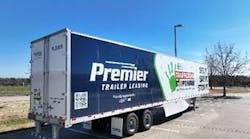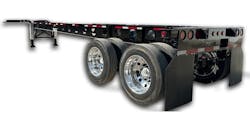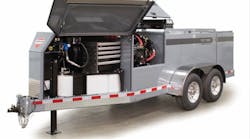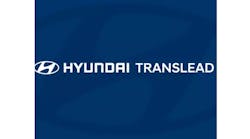MOST significant employee fraud typically is performed by a dealership's controller because that person has access to cash, the ability to override controls, and accounting knowledge that helps conceal theft, according to
Greg Althardt and Terry Werner of LarsonAllen LLC.
In their NTDA presentation, “Identifying and Preventing Fraud,” they said that very few people are born a thief, but pressures in their life typically turn an otherwise honest individual into a thief: marital issues, family issues, gambling, drugs and alcohol, family or personal illness, job loss of a spouse, or living a lifestyle above their means.
“Very little can be done to combat an employee's personal issues,” Althardt said. “Be aware of the red flags.”
He said most thieves need to be able to rationalize why their crime is not immoral, even if illogical. Examples include perceived compensation discrepancies or being burdened with “unfair” personal issues.
“The controller sees the sales manager getting paid on gross, and that manager ends up having a good six months and gets huge bonuses, but the controller makes the same amount no matter what,” he said. “The easiest rationalization an employee can make is when the ‘tone at the top’ is not set high. If the dealer is not acting in an ethical manner, employees see it as an open invitation to lower their own ethical bar.”
The potential thief must have access to assets and the belief he or she is going to get away with it. Studies have shown at any one time, 20% of employees have both the incentive to steal and the ability to rationalize the theft. To limit fraud, management must limit the perceived opportunity for the 20% that are poised to steal.
The most common dealership thefts involve a company credit card, expense reports, missing deposits, EFT and wire transactions, petty cash, parts theft, unusual parts adjustments, under the table payments (trips from vendors), payroll fraud, gas cards, and check alteration.
He said there are numerous procedures and techniques dealers can employ to limit opportunities, many of which involve little or no cost:
-
Segregation of duties. The concept is that no one person is responsible for a transaction from “cradle to grave”. Most transactions involve initiation, approval, recording, and reconciling. The same person should not be responsible for all four duties. Example: The person in your office who is reconciling your bank account should not be a check signer or have wire transfer authority. That's a bad combination.
-
All petty cash vouchers should be initialed by the dealer when the fund is reimbursed.
-
Bank statements should come to the dealer unopened. The dealer should review all canceled checks and wire transfers out of the account for any unusual items. Ask questions, even if you know the answer.
-
The dealer should ask to see supporting documentation for certain items each month just to let everyone know you are looking.
-
Adequate support and check request authorizations should be present for check signers to review before signing.
-
Bank accounts should be thoroughly reconciled with each statement by a person who has no access to cash. Dealers should review completed bank reconciliations.
-
Passwords should be established and used for individuals authorized to make wire transfers. All banks are different, so work with your bank.
-
All department managers should be required to sign off on payrolls each pay period to approve the identity of the listed employees and the amount paid.
-
No cash payments should ever be made for payroll purposes.
-
At least quarterly, the dealer should review the payroll register to ensure all employees are known.
-
Take a frequent unannounced inventory of all trailers. Check condition, signs of unauthorized use, and equipment shortages. Test the results against office records and immediately investigate discrepancies. The inventory should be performed by someone without inventory management or general ledger responsibilities.
-
Complete cycle counts of parts inventories on a weekly basis. Review plus/minus reports to spot unusual activity.
-
Physically limit the individuals who are able to pull parts.
-
Review the list of open repair orders and parts tickets to ensure old items do not exist. Service and parts managers can circumvent credit policies by not closing tickets.
-
Maintain an approved list of vendors and allow only those so approved receive a check. Review the list periodically. “It's very easy for a controller to come in, ‘Hey, our copier has been repaired. Here's a $300 bill for it.’ And dealers will sign it without even thinking, not knowing if it's a true vendor. It could be his brother, or maybe it's his home address. Compare that address against all employees' home addresses.”
-
Review income and expense trend reports on a monthly basis. Ensure adequate explanations are received for any unusual fluctuations.
-
Review postings to other income and deductions on a monthly basis.
-
Change the locks annually. “It's amazing with turnover how many extra keys there are out there.”
-
Require password changes on a quarterly basis for access to the dealership's computer system.
-
Require vacations.
-
Review adjusting journal entries and ask for support for unusual items (items affecting cash, receivable write-offs, etc).
-
Limit access to the accounting software, specifically general ledger access.
Werner said the most difficult fraud to detect is when collusion is present — either two or more employees or an employee and an outside party.
“If they're smart about it, it's very difficult to catch until one of them gets upset with the other and spills the beans,” he said. “Whistle-blower policies are helpful. It doesn't seem like much, but 30% of all fraud is detected via tips. Have an anonymous box where they can tip off a dealer that something may be going on. You may go a whole year without anything, but one time that you do, it could save you a lot of money.
“Review insurance policies to insure adequate employee theft coverage. Year-end CPA services are more likely to prevent fraud than catch fraud. When guys like us come in, it's a speed bump. Someone has to get over us for a theft to happen. Some measures are more specific than others. Even an audit isn't designed to catch fraud - only significant fraud. Don't count on your CPA to be your catch-all. Be visible. Ask questions. Ask for some parts reports. It's amazing the small things you can do that put up roadblocks.”
He said external fraud happens by extending credit to business or individuals without references, credit checks, or deposits; use of credit cards over the phone (identity theft); phony invoices and vendors; and securing physical access to your building and lots.
“Do not deposit mail in a remote postal drop, especially checks which have been written to pay an invoice,” he said. “Always do a bank statement reconciliation at least once a month, and preferably more often. If a check is stolen, lost or altered, you will be able to rectify the situation before it causes problems for the company.”








